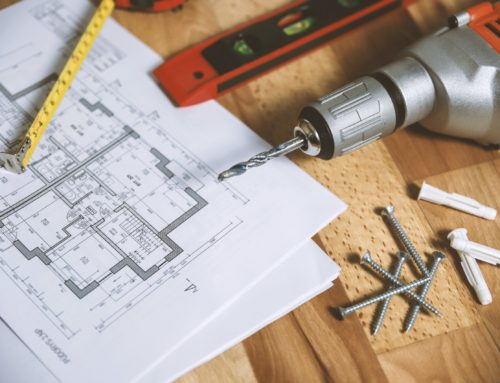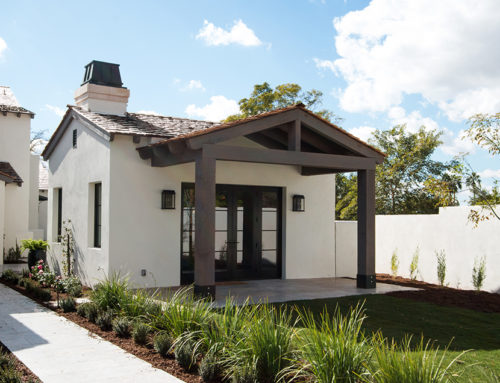 There’s nothing better than buying a brand new constructed home right? You don’t have to deal w/ worn carpet or scratched on the wood flooring, the previous owner’s questionable choice in paint color or wallpaper or cumbersome negotiation because of the seller’s emotional ties to the home. To quote one of my favorite TV personalities Lee Corso from ESPN College Game Day – NOT SO FAST MY FRIEND! Take it from someone who’s actually built homes from the ground up, there are quite a few things to pay close attention to.
There’s nothing better than buying a brand new constructed home right? You don’t have to deal w/ worn carpet or scratched on the wood flooring, the previous owner’s questionable choice in paint color or wallpaper or cumbersome negotiation because of the seller’s emotional ties to the home. To quote one of my favorite TV personalities Lee Corso from ESPN College Game Day – NOT SO FAST MY FRIEND! Take it from someone who’s actually built homes from the ground up, there are quite a few things to pay close attention to.
What to look for
- First releases – If at all possible, buy in the first release. You can get the scoop from sites like New Home Source or Top Ten New Homes or from your local news. In the first release, builders are not certain how the market will respond still. After that initial feedback they will adjust or raise prices and become harder to negotiate.
- Units in the middle of the development – Away from street traffic and more privacy
- End units – Especially if it’s a town home or row house style development. End units have only one shared wall instead of two.
- Directions – How is the unit orientated to how the sun rises and falls? Having the living space in the east would be good as the sun rises, but better make sure you have good blinds or curtains if the master bedroom faces east.
Use a realtor familiar with construction
Do your homework
- Builder’s reputation – Talk to your agent and other homeowners of previously homes constructed by the same builder about their experience. Look for online reviews, local licensing boards, or Better Business Bureau to see if there’s been complaints or worse, liens on the property because the builder skipped out on paying contractors.
- What else is going up in the area – Again, talk to some folks in the area or the local planning department to get a sense what else is getting built in the area.
- Contract – Builders often use custom contracts instead of the standard form used by your state or local MLS that has been combed through and litigated on until the cows come home. These contracts are very builder friendly. You’ll want to consider having a lawyer review the documents for you.
- HOA documents – Review the HOA bylaws and Covenants, Conditions, and Restrictions (CC&R’s). How much are HOA dues? What amenities are included? Parking? Guest Parking? Pets? Rental restrictions? What do the HOA insurance cover? Pay special attention to some of these items that can dramatically impact your quality of life and checkbook. Also note when you have to start paying dues. Most builders cove the costs until at least 50% of the project has been sold.
 Negotiation
Negotiation
- Closing costs or credits – Some builders will cover your closing costs or give you credit towards closing.
- At cost upgrades – It’s not uncommon for the builder to mark up 50% for upgrades. It’s like pizzas… they get you with the toppings. You might be able to roll the cost of the upgrades into your loan amount vs paying out of pocket to a contractor later but why pay more when you don’t have to?
- Electrical – It’s way easier to put in recessed lighting from the get go instead of trying to do it yourself later. I usually ask for these things along with better switches, surround sound wiring, cable and fan outlets.
- Amenities – New homes often don’t come with fences, decks, window blinds, or landscaping. You can ask for thee instead of paying out of pocket for them later.
- Appliances – if the builder won’t budge on anything else, at least try to get a free fridge and washer dryer.
Which Lender to Use
- Rates
- Points & fees
- Credits
- Speed
What are you getting and warranties
 To buy (or not to buy) the model home
To buy (or not to buy) the model home
- They’re the last one to be sold so you can’t move in for a while
- They tend to be in the worst location in the community
- You can’t pick the upgrades, and the upgrades the builders use tend to be too high-end and hard for you to recoup the costs.
That said, if some of these factors aren’t important to you or you watch out for them, you can sometimes get a great deal from the builder by buying the model home.
Parting Pro tips
- Get the insurance company’s info – If stuff hits the fans and the developer closed down the entity they operated in, you can at least have someone who has financial interest to address your concerns.
- Best time to buy – Many builders are publicly traded companies, so near quarter end and year-end they often will want to try to hit their forecasted numbers and more inclined to make a deal. Also if someone backs out the builder will be eager to make a deal.
- Get on the pre-approval list – If the demand is high, sometimes builders have a lottery or priority list for those that are pre-approved. Sometimes the reps will just pick who they like better as well. Have you documents in order and build rapport with the reps.
- Inspection and walk-through – yes, even though it’s a new house, contractors do make mistakes. The HVAC can be too small or plumbing can be installed backward. Ideally you have one as well before the drywall or finishes have been put in when problems are easier to identify.
Did you find this helpful? If you’re interested in buying a new construction, give me a call today for a free consultation.





